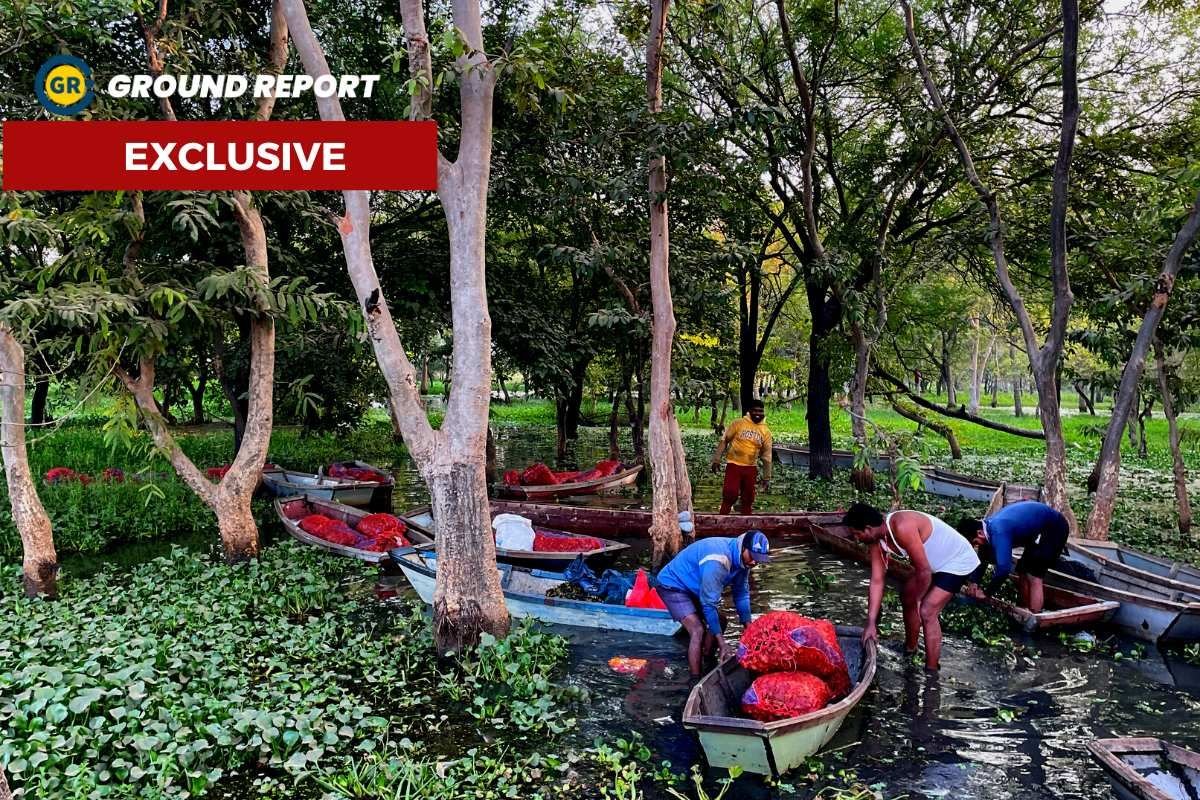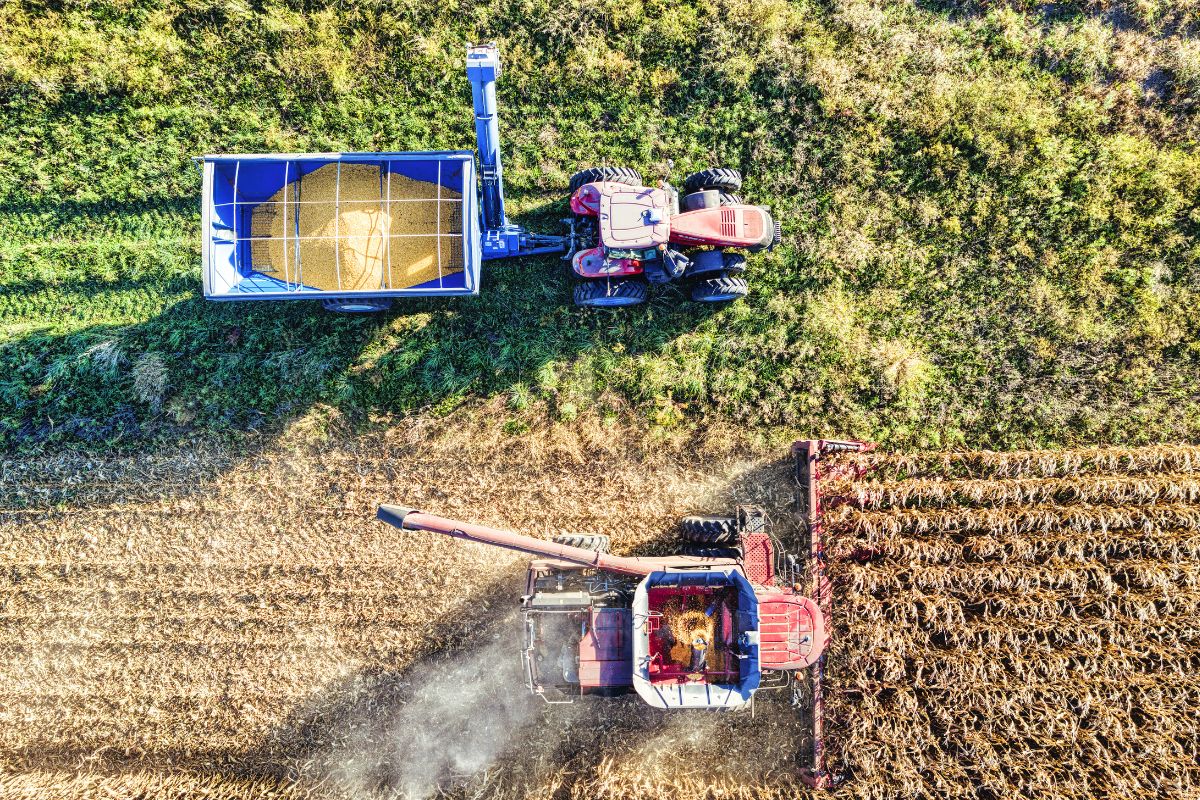In the wetlands of Bhopal, in the month of November-December, you will see farmers plucking water chestnuts from the ponds. Water chestnut is a good source of income for fishermen in the city of lakes, Bhopal. Ground Report spoke to one such water chestnut farmer to know how he manages water chestnut farming.
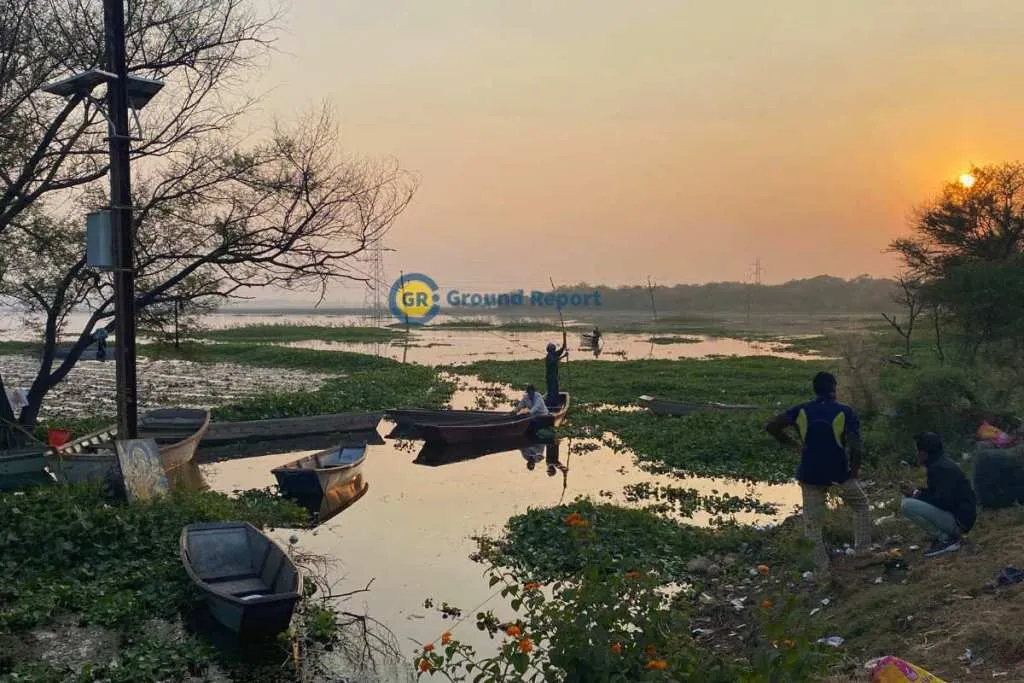
Dev Rath Manjhi is a fisherman and doing water chestnut farming for generations. The lakes are the only source of their livelihood. In the monsoon season, he sows water chestnuts on the Khajuri side of Upper Lake Bhopal. For this, they have to take the permission of the Municipal Corporation.
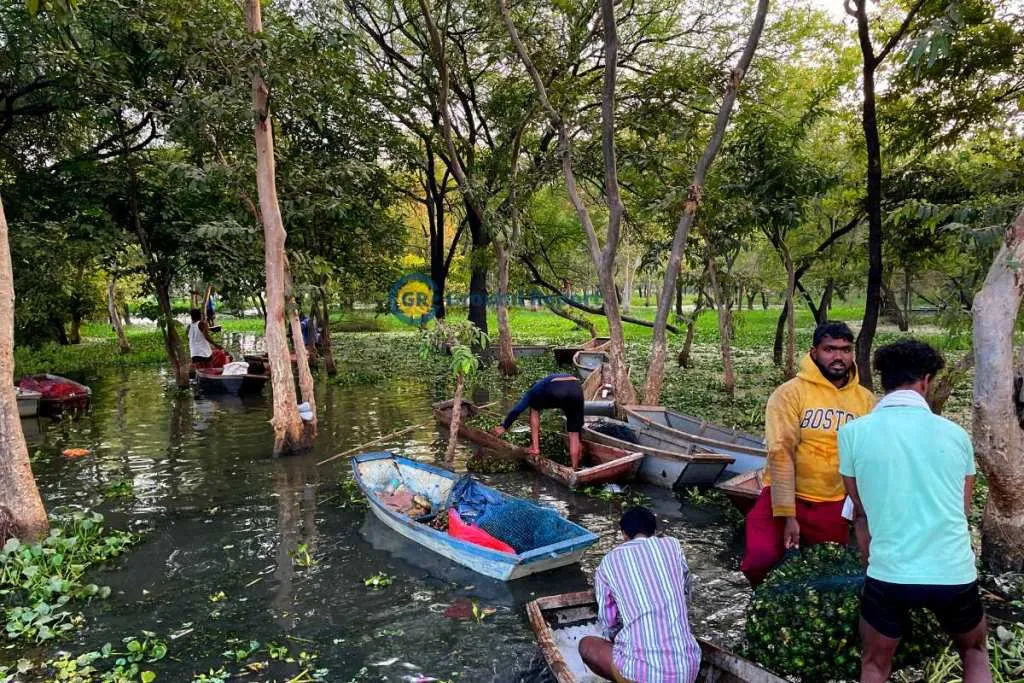
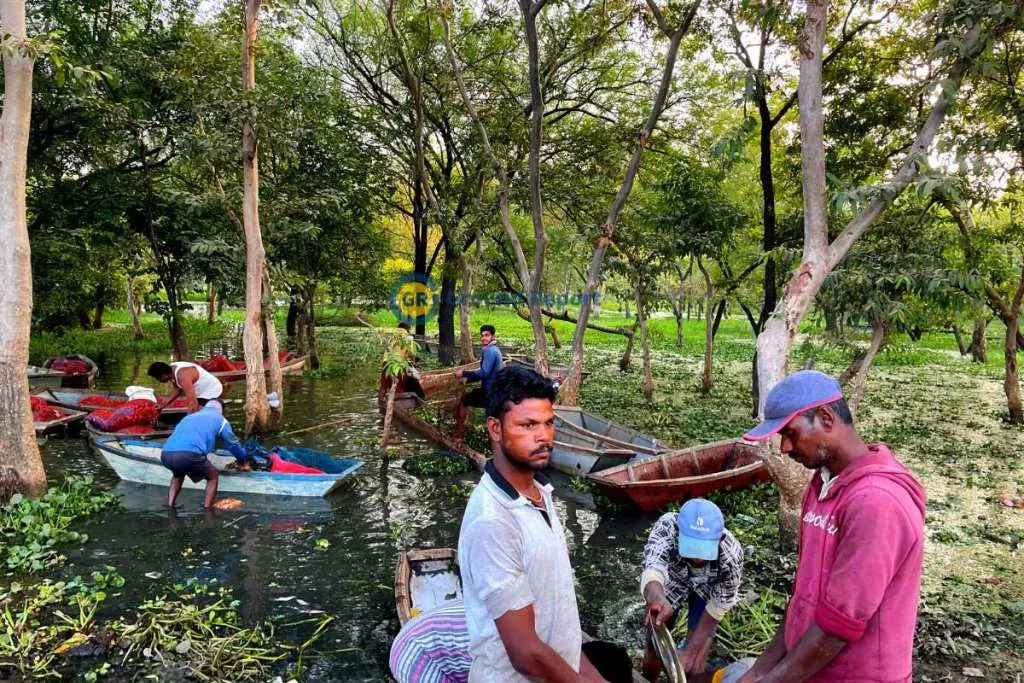
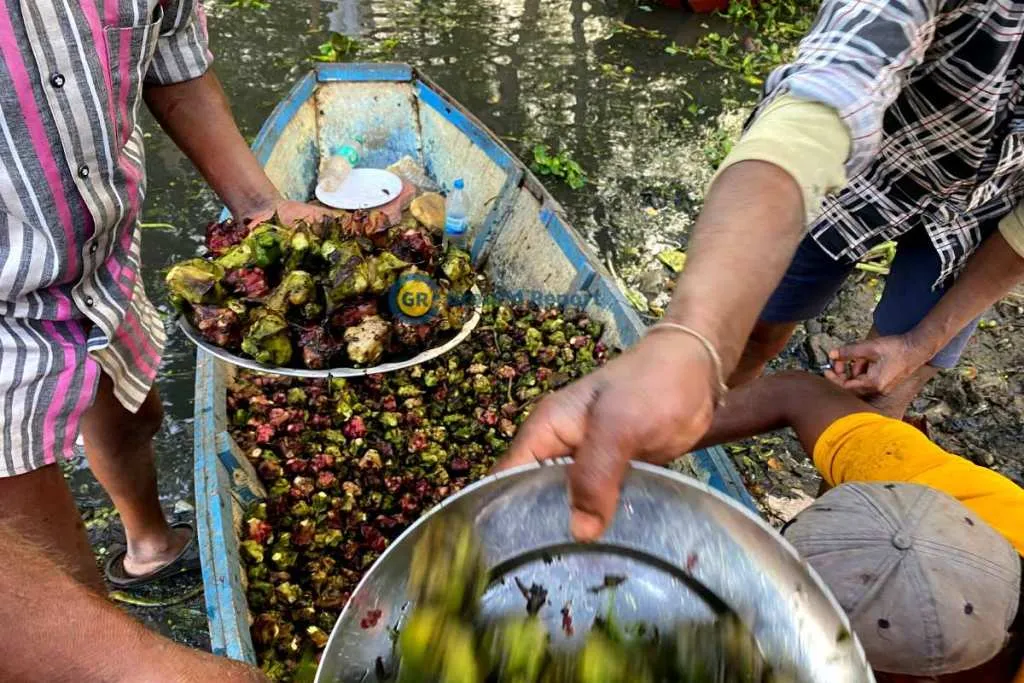
Livelihood
Water chestnut farmers themselves choose their area in the pond. Water chestnut is sold in the market from September to the second week of December. At the same time, these farmers take their boats to the ponds and harvest chestnuts.
Mahesh, a labourer who came to pluck water chestnuts, says that-
“This is our employment for three months. We get decent wages here, thats why we are working. We have to find another job after December.”
Mahesh says
“Our work is to pluck water chestnuts by going in boats and then fill them in sacks and send them to the godown of the contractor.”
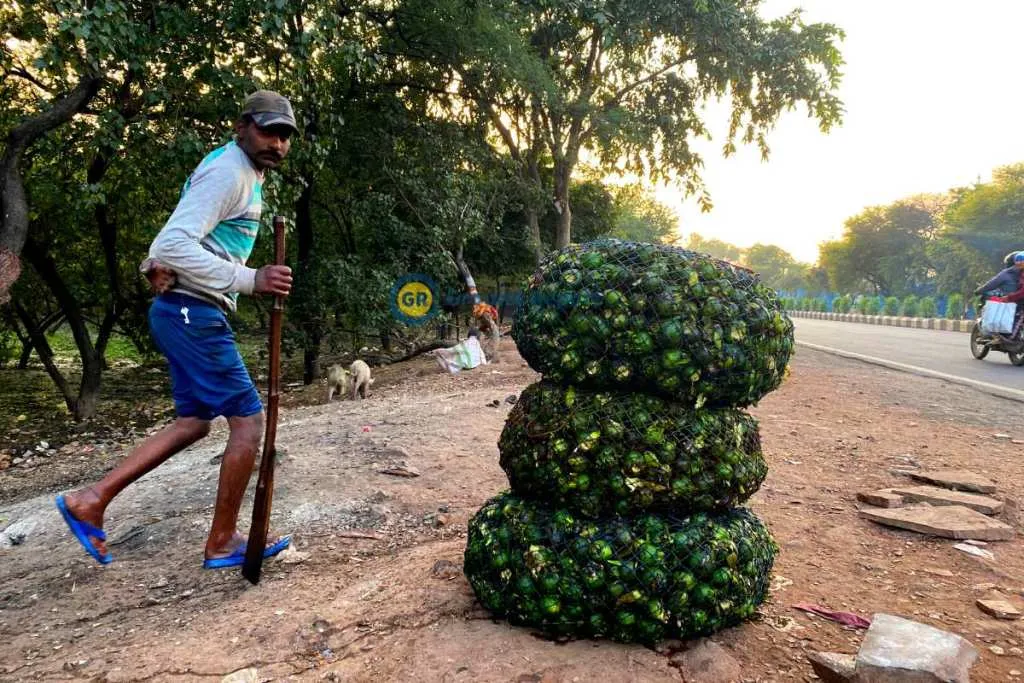
At this time in Bhopal, the water chestnut crop can be seen far and wide in the ponds and labourers gather on the banks and are engaged in plucking the ready crop.
How much is the earning?
Regarding the income from water chestnut farming, farmers say that “It is a cash crop, 40-45 thousand is earned from one bigha area. It is an aquatic crop, and for this, it is necessary to have two to three feet of water. Its seeds are available from the government market or we save the seeds from the second harvesting of the crop.”Water Pollution
On the question of pollution, Dev Rath Manjhi says
“You see, where water chestnut is planted, the pond will be clearly visible, and where it was not planted, there will be garbage in the pond. We do not only grow crops but also take care of the cleanliness of the pond.”This is our daily bread.”
But let us tell you that in the last few years, many types of pesticides and chemicals have been used to prepare water chestnut crops, due to which the ponds are being polluted. These chemicals are harmful to the living organisms in the water.
It is true that if the cultivation of aquatic plants is done traditionally, then they are good for the environment. But nowadays farmers do not take care of this in the interest of higher profits.
Keep Reading
Indian agriculture household earns just Rs. 10,218 in a month: Govt
Post-harvest losses still high, reveals data shared in Lok Sabha
Khadi Haat village’s power-free wastewater treatment solution and more
Support us to keep independent environmental journalism alive in India.
Follow Ground Report on X, Instagram and Facebook for environmental and underreported stories from the margins. Give us feedback on our email id greport2018@gmail.com.
Don’t forget to Subscribe to our weekly newsletter, Join our community on WhatsApp, Follow our Youtube Channel for video stories.
